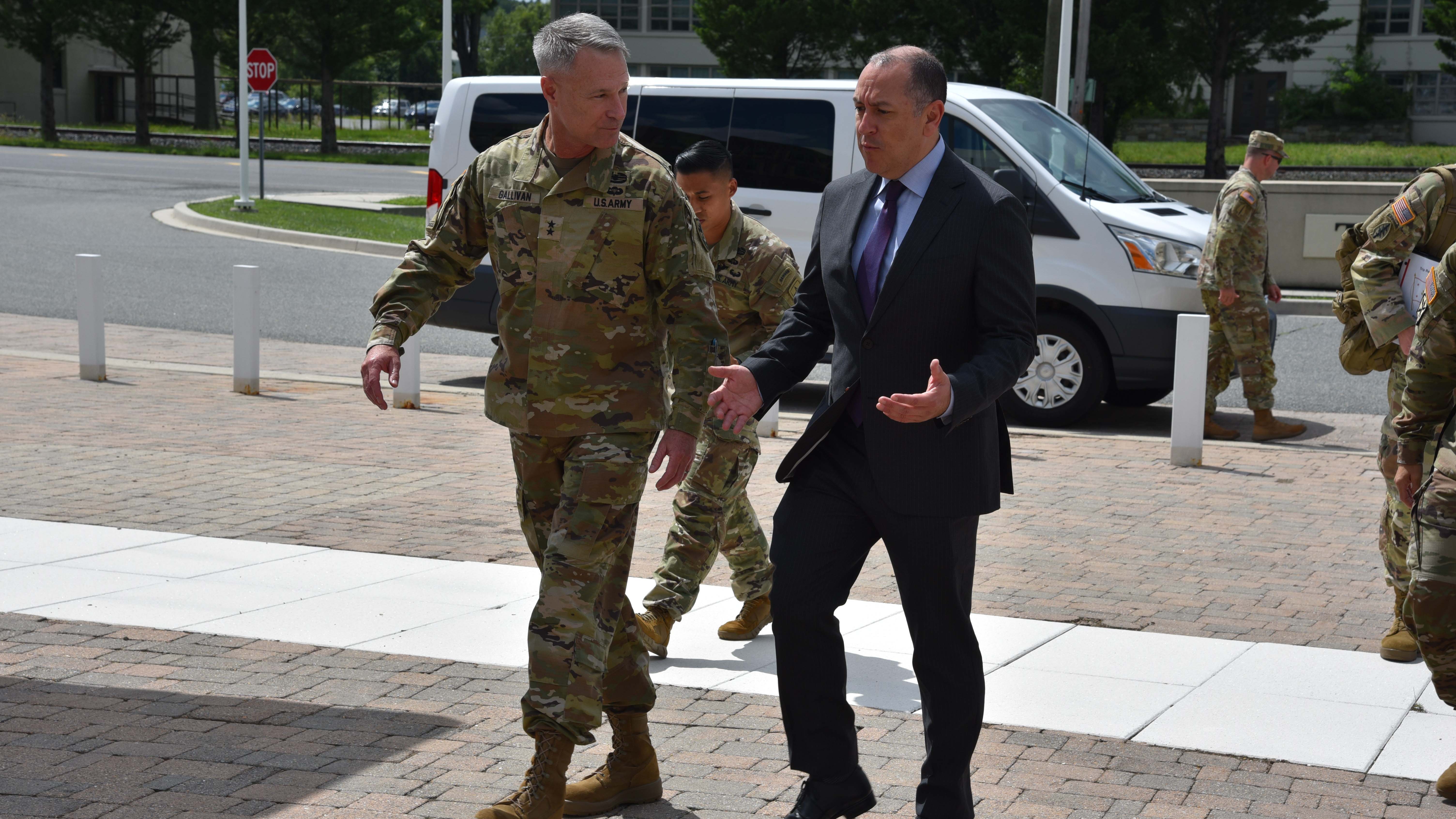Camarillo: Army Gains Modernization Momentum
Camarillo: Army Gains Modernization Momentum

The Army is hitting its stride when it comes to reaching its modernization goals, Army Undersecretary Gabe Camarillo said.
“I think we've got a tremendous amount of momentum headed into our modernization portfolio,” Camarillo said Sept. 7 during a conference hosted by Defense News. “Many of our programs … are working their way through the process to achieve these critical milestones and getting to the next phase … where we can field capabilities that are relevant to our soldiers.”
While budget trade-offs are expected, Camarillo said that they are “just the normal course of doing business.”
“The challenge of [modernizing within budget constraints] is how do you keep that momentum going? In the [fiscal] ‘23 budget, we worked very hard to make sure that we were able to sustain that momentum,” he said. “In any given budget year, you do have to make trade-offs.”
In fiscal 2023, which begins Oct. 1, the Army plans to field or deliver prototypes for 24 signature modernization systems, including long-range hypersonic missiles, medium-range missiles, the Precision Strike Missile, Mobile Protected Firepower, the Maneuver Short-Range Air Defense System and the Next Generation Squad Weapon.
Camarillo pushed back on the idea that supplementing Ukraine’s stockpiles will affect U.S. readiness, adding that the Army and Defense Department have been “working very, very diligently.”
“My entire tenure has been working with this issue,” he said. “I give a lot of credit to teams across the Department of Defense, from the Army all the way to DoD, for … providing [a] very fast, timely and well-coordinated response in terms of capabilities that were provided to the Ukrainians.”
The Army also is working to address recruiting challenges that have been exacerbated by the COVID-19 pandemic.
In the near-term, the Army “extended some of our best military recruiters” and provided additional incentives such as bonuses for recruits who ship quickly to basic training, Camarillo said.
Leaders also established the Future Soldier Preparatory Course at Fort Jackson, South Carolina, a 90-day program aimed at helping recruits meet Army physical and academic standards, and Army Secretary Christine Wormuth stood up a task focus focused on “addressing more systemic ways we can approach this challenge,” Camarillo said.

